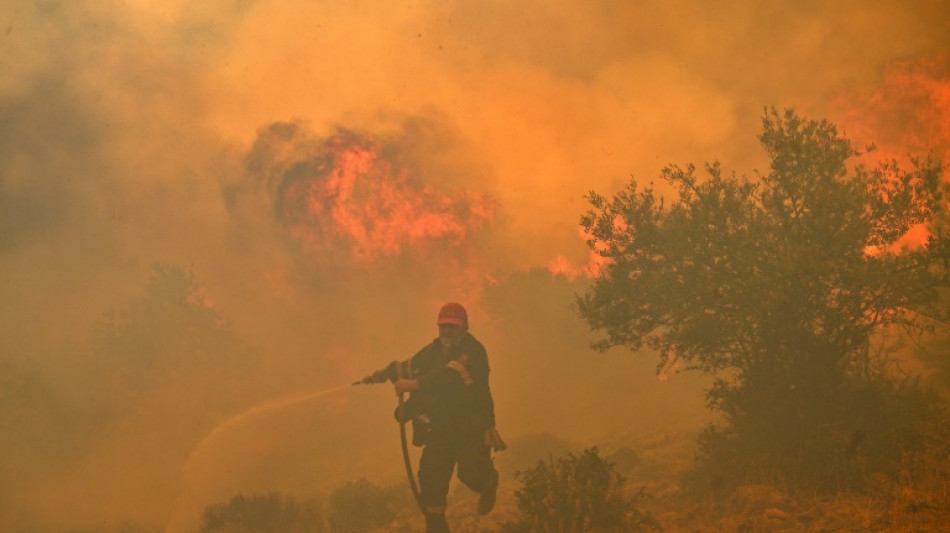
-
 Trump tariffs spark fears for Asian jobs, exporting sectors
Trump tariffs spark fears for Asian jobs, exporting sectors
-
Stocks and dollar sink, havens rally as Trump tariffs fan trade war

-
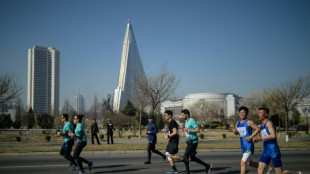 Runners fly to North Korea for first post-Covid Pyongyang Marathon
Runners fly to North Korea for first post-Covid Pyongyang Marathon
-
Hamilton rubbishes claims he's lost faith in Ferrari

-
 Nintendo Switch 2 sparks excitement despite high price
Nintendo Switch 2 sparks excitement despite high price
-
Sri Lanka's crackdown on dogs for India PM's visit sparks protest
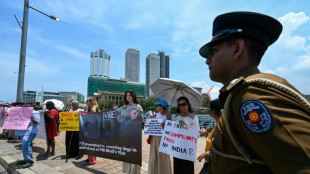
-
 S Korea police raise security levels ahead of impeachment verdict
S Korea police raise security levels ahead of impeachment verdict
-
China vows 'countermeasures' to sweeping new US tariffs

-
 Trump jolts allies, foes and markets with tariff blitz
Trump jolts allies, foes and markets with tariff blitz
-
France says EU to target US online services after Trump tariffs

-
 Tsunoda vows to bring 'something different' after Red Bull promotion
Tsunoda vows to bring 'something different' after Red Bull promotion
-
Verstappen not happy with Tsunoda-Lawson Red Bull swap

-
 Experts accuse 54 top Nicaragua officials of grave abuses
Experts accuse 54 top Nicaragua officials of grave abuses
-
Remains of 30th victim of Los Angeles fires found
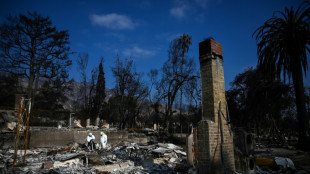
-
 EU to target US online services after Trump tariffs: France
EU to target US online services after Trump tariffs: France
-
How Trump's 'liberation day' tariffs will impact China
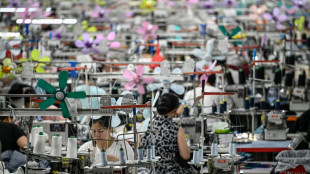
-
 Malaysia suspends search for long-missing flight MH370
Malaysia suspends search for long-missing flight MH370
-
Search for long-missing flight MH370 suspended: Malaysia minister

-
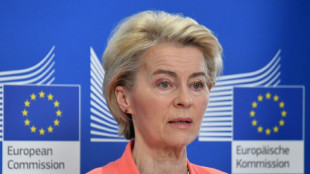 Europe hits out at Trump tariffs, keeps door open for talks
Europe hits out at Trump tariffs, keeps door open for talks
-
Myanmar's junta chief to head to Bangkok summit as quake toll surpasses 3,000

-
 Lawson vows to prove he belongs in F1 after shock of Red Bull axing
Lawson vows to prove he belongs in F1 after shock of Red Bull axing
-
Australia sweats through hottest 12 months on record: official data

-
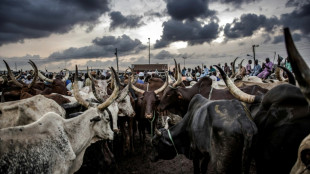 Livestock theft is central to jihadist economy in west Africa
Livestock theft is central to jihadist economy in west Africa
-
South African artist champions hyenas in 'eco-queer' quest

-
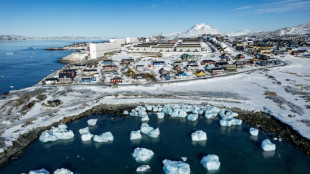 Danish PM in 'unity' Greenland visit amid US takeover threats
Danish PM in 'unity' Greenland visit amid US takeover threats
-
Taiwan says US tariffs 'highly unreasonable'
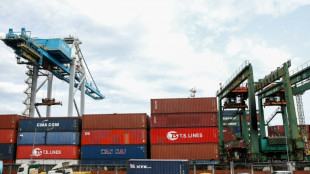
-
 Lawson says ruthless Red Bull axing was 'tough to hear'
Lawson says ruthless Red Bull axing was 'tough to hear'
-
Heat humble Celtics for sixth straight win, Thunder roll on

-
 Trump escalates trade war with sweeping global tariffs
Trump escalates trade war with sweeping global tariffs
-
Japan says US tariffs 'extremely regrettable', may break WTO rules

-
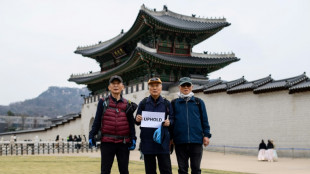 South Koreans anxious, angry as court to rule on impeached president
South Koreans anxious, angry as court to rule on impeached president
-
Juve at in-form Roma with Champions League in the balance

-
 Injuries put undermanned Bayern's title bid to the test
Injuries put undermanned Bayern's title bid to the test
-
Ovechkin scores 892nd goal -- three away from Gretzky's NHL record

-
 Australian former rugby star Petaia signs for NFL's Chargers
Australian former rugby star Petaia signs for NFL's Chargers
-
China says opposes new US tariffs, vows 'countermeasures'

-
 Athletics world watching as 'Grand Slam Track' prepares for launch
Athletics world watching as 'Grand Slam Track' prepares for launch
-
Heat humble Celtics for sixth straight win, Cavs top Knicks

-
 Quake-hit Myanmar's junta chief to head to Bangkok summit
Quake-hit Myanmar's junta chief to head to Bangkok summit
-
New Spielberg, Nolan films teased at CinemaCon

-
 Shaken NATO allies to meet Trump's top diplomat
Shaken NATO allies to meet Trump's top diplomat
-
Israel's Netanyahu arrives in Hungary, defying ICC warrant

-
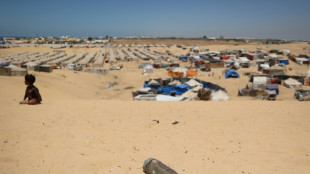 Shiny and deadly, unexploded munitions a threat to Gaza children
Shiny and deadly, unexploded munitions a threat to Gaza children
-
Stocks tank, havens rally as Trump tariffs fan trade war

-
 Altomare hangs on to tie defending champ Korda at LPGA Match Play
Altomare hangs on to tie defending champ Korda at LPGA Match Play
-
Paraguay gold rush leaves tea producers bitter
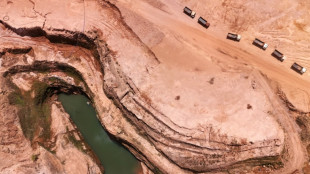
-
 Health concerns swirl as Bolivian city drowns in rubbish
Health concerns swirl as Bolivian city drowns in rubbish
-
Syria says deadly Israeli strikes a 'blatant violation'

-
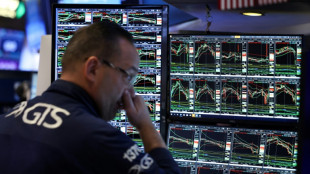 Financial markets tumble after Trump tariff announcement
Financial markets tumble after Trump tariff announcement
-
Starbucks faces new hot spill lawsuits weeks after $50mn ruling


Europe, US heatwaves 'virtually impossible' without climate change
Blistering heat that has baked swathes of North America and Europe this month would have been "virtually impossible" without human-caused climate change, researchers said Tuesday, as intense temperatures spark health alerts and stoke ferocious wildfires.
With tens of million people affected in the northern hemisphere and July on track to be the hottest month globally since records began, experts warn that worse is to come unless we reduce planet-heating emissions.
Severe heatwaves have gripped southern Europe, parts of the United States, Mexico and China this month, with temperatures above 45 degrees Celsius.
In the new rapid analysis of the scorching temperatures, scientists from the World Weather Attribution group found that the heatwaves in parts of Europe and North America would have been almost impossible without climate change.
Temperatures in China were made 50 times more likely by global warming, they found.
"The role of climate change is absolutely overwhelming," said climate scientist Friederike Otto, of the Grantham Institute for Climate Change and the Environment, Imperial College London.
Intense temperatures have swept much of the southwest and southern United States -- including in Phoenix, Arizona, which suffered a record-breaking three straight weeks of highs above 43C.
Blazes on the Greek mainland and islands have caused tens of thousands to flee, sent tourists scrambling for evacuation flights and prompted the prime minister to say the country is "at war".
In Beijing, the government urged the elderly to stay indoors and children to shorten outdoor playtime to reduce exposure to the heat and ground-level ozone pollution.
- 'More extreme' -
Scientists have already established that climate change -- with about 1.2C of global warming since the late 1800s -- has made heatwaves in general hotter, longer and more frequent.
To trace how far the July heatwaves in the northern hemisphere had departed from what would have been expected without that warming, Otto and her WWA colleagues used weather data and computer model simulations to compare the climate as it is today with that of the past.
Researchers said they focused on periods when "the heat was most dangerous in each region".
Otto said in the past it would have been "basically impossible" that such severe heat waves would happen at the same time and that people should no longer be surprised to see temperature records tumbling.
The future could be even worse.
"As long as we keep burning fossil fuels we will see more and more of these extremes."
The researchers found that these severe heatwaves can now be expected roughly once every 15 years in North America, every 10 years in southern Europe and every five years in China.
And they will become even more frequent -- happening every two to five years -- if temperature rise reaches 2C, expected in around 30 years unless countries fulfil their Paris Agreement pledges and rapidly cut emissions.
The study also found that these heatwaves were hotter than they would have been without climate change.
Last week leading NASA climatologist Gavin Schmidt told reporters that July 2023 is not just on track to be the hottest absolute month since records began, but also the hottest in "hundreds, if not thousands, of years".
Experts have said that the surging heat cannot be attributed solely to the warming El Nino weather pattern, which is not expected to strengthen until later on in the year.
As with other impacts from climate change, it is those most vulnerable who are most at risk.
Last week, the World Health Organization said the extreme heat was straining healthcare systems, hitting older people, infants and children.
The WHO said it was particularly concerned about people with cardiovascular diseases, diabetes and asthma.
O.Johnson--AMWN


